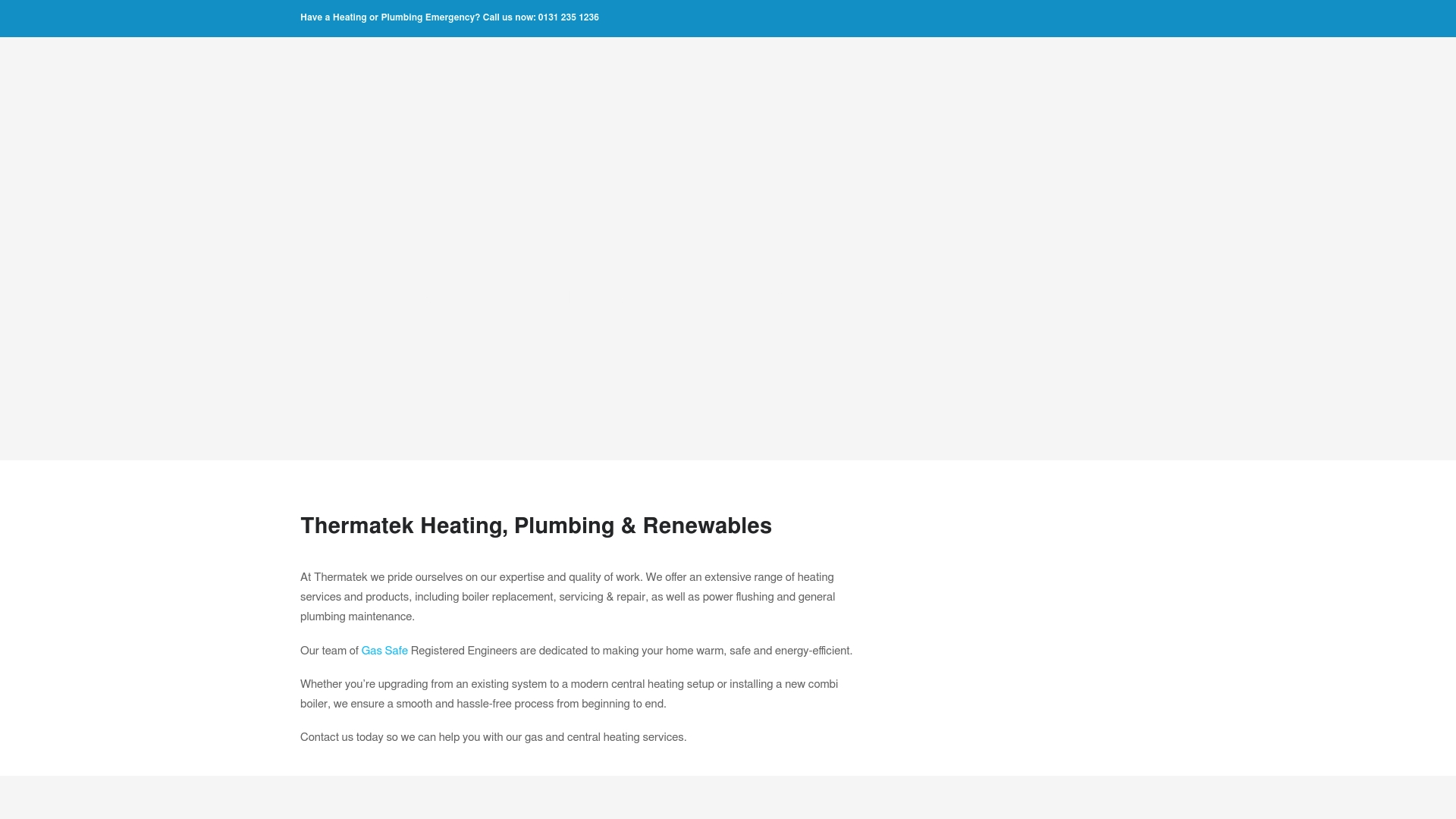Understanding How Often to Service Your Boiler
A boiler is the heart of a warm and comfortable home, quietly powering radiators and hot water for daily life. Most people think of it as a straightforward gadget, only there to boil water on cold days. Yet here’s the surprise. Modern boilers can convert up to 90 percent of fuel into usable heat, making them far more efficient and valuable than people realise. This unexpected figure is just the beginning of what every homeowner needs to know about their boiler’s real impact.
Table of Contents
- What Is A Boiler And Its Function In Your Home?
- Why Regular Boiler Servicing Is Essential?
- How Boiler Servicing Contributes To Energy Efficiency
- Factors Influencing Boiler Servicing Frequency
- Understanding The Risks Of Neglecting Boiler Maintenance
Quick Summary
| Takeaway | Explanation |
|---|---|
| Regular servicing prevents costly repairs | Routine maintenance helps identify issues early, avoiding expensive repairs down the line. |
| Boiler type influences servicing frequency | Different boiler types and ages require variable maintenance schedules for optimal performance. |
| Neglecting maintenance poses safety hazards | Poorly maintained boilers can lead to serious risks, including carbon monoxide leaks and system failures. |
| Professional servicing boosts energy efficiency | Regular maintenance optimises boiler performance, reducing energy consumption and utility bills. |
| Understanding water hardness impacts boiler upkeep | Areas with hard water may need more frequent servicing to prevent mineral buildup and inefficiencies. |
What is a Boiler and Its Function in Your Home?
A boiler is a fundamental heating system that plays a crucial role in maintaining comfort and warmth within residential properties. Unlike common misconceptions, a boiler does more than simply boil water – it is a sophisticated appliance designed to heat water and distribute warmth throughout your home via radiators, underfloor heating, or hot water taps.
The Core Mechanism of Boiler Operation
At its core, a boiler works by heating water through a combustion process, typically using natural gas, oil, or electricity. The heated water or steam is then circulated through a network of pipes and radiators, transferring heat efficiently to warm your living spaces. The Energy Saving Trust confirms that modern boilers can convert up to 90% of fuel into usable heat, making them significantly more efficient than older models.
Types of Boilers in Residential Settings
Boilers come in several varieties, each suited to different home configurations and heating requirements:
- Combi Boilers: Compact units that provide heating and hot water directly from the mains, ideal for smaller properties
- System Boilers: Suitable for homes with multiple bathrooms, storing hot water in a separate cylinder
- Regular Boilers: Traditional systems with separate cold water tank and hot water cylinder, common in older properties
Understanding your specific boiler type helps in maintaining its efficiency and longevity, ensuring consistent warmth and hot water supply throughout your home.
Below is a table comparing the different types of residential boilers, highlighting their main features and common usage scenarios to help homeowners identify their own system and its needs.
| Boiler Type | Key Features | Typical Usage Scenario |
|---|---|---|
| Combi Boiler | Compact, provides heating & hot water directly from mains | Smaller properties, limited space |
| System Boiler | Requires hot water cylinder, no cold water tank | Homes with multiple bathrooms |
| Regular Boiler | Traditional; separate cold water tank & hot water cylinder | Older properties, larger households |
Why Regular Boiler Servicing is Essential?
Regular boiler servicing is a critical maintenance practice that protects your home’s heating system, ensures optimal performance, and prevents potentially costly breakdowns. Just like a car requires routine maintenance, your boiler needs professional attention to function efficiently and safely throughout its operational lifespan.
Safety and Performance Implications
Boiler servicing goes far beyond routine maintenance. It is a comprehensive inspection that identifies potential safety risks and performance issues before they escalate. The U.S. Department of Energy emphasizes that annual maintenance helps prevent serious safety concerns such as carbon monoxide leaks, which can pose significant health risks to your household.
Key Benefits of Regular Professional Servicing
Regular boiler servicing provides multiple critical advantages:
- Efficiency Optimization: Professional servicing ensures your boiler operates at peak efficiency, reducing energy consumption and lowering utility bills
- Extended Equipment Lifespan: Routine maintenance prevents premature wear and can significantly extend your boiler’s operational years
- Early Problem Detection: Technicians can identify and address minor issues before they develop into major, expensive repairs
By investing in professional boiler maintenance services, homeowners can protect their heating system, ensure consistent performance, and maintain a safe living environment.
How Boiler Servicing Contributes to Energy Efficiency
Boiler servicing plays a pivotal role in maintaining and enhancing the overall energy efficiency of your home heating system. By ensuring that your boiler operates at peak performance, regular maintenance can significantly reduce energy consumption and lower utility costs.
The Direct Impact on Energy Performance
Professional boiler servicing involves a comprehensive examination of all system components, which directly influences energy efficiency. The U.S. Department of Energy confirms that routine maintenance, including cleaning and calibrating system components, can substantially improve heat transfer and system performance.
Key Efficiency Improvement Strategies
During a professional service, technicians implement several strategies to optimize energy efficiency:
- Cleaning Critical Components: Removing dust, debris, and scale buildup from heat exchangers and burners
- Calibration of System Settings: Adjusting combustion settings to ensure optimal fuel-to-air ratios
- Identifying and Repairing Minor Issues: Detecting potential inefficiencies before they become major problems
By investing in comprehensive boiler maintenance, homeowners can achieve a more energy-efficient heating system that not only reduces energy consumption but also minimizes environmental impact and lowers monthly utility expenses.
Factors Influencing Boiler Servicing Frequency
Boiler servicing frequency is not a one-size-fits-all approach but depends on multiple interconnected factors that vary across different households and heating systems. Understanding these factors helps homeowners develop a proactive maintenance strategy that ensures optimal boiler performance and longevity.
Age and Type of Boiler System
The age and specific type of your boiler significantly impact how often it requires professional servicing. Newer condensing boilers might need less frequent maintenance compared to older traditional models. Gas Safe Register recommends annual servicing as a standard practice, but the exact frequency can depend on your boiler’s manufacturer specifications and overall condition.
Usage Patterns and Environmental Considerations
Boiler servicing frequency is closely tied to how intensively the system is used and the environmental conditions it operates within. Factors that influence servicing needs include:
- Heating Intensity: Homes with constant or high-demand heating require more frequent servicing
- Water Hardness: Areas with hard water can cause faster mineral buildup, necessitating more regular maintenance
- System Age: Older boilers typically need more frequent professional inspections
- Manufacturer Recommendations: Each boiler model has specific maintenance guidelines
By understanding these variables, homeowners can develop a tailored approach to boiler maintenance and replacement that protects their heating investment and ensures consistent performance.

Understanding the Risks of Neglecting Boiler Maintenance
Neglecting boiler maintenance is a dangerous practice that can lead to significant safety hazards, substantial financial costs, and potential catastrophic system failures. Homeowners who overlook regular professional servicing expose themselves to risks that extend far beyond simple mechanical breakdown.
Safety Hazards and Health Risks
Boiler neglect can create life-threatening situations within your home. The Roman Catholic Archdiocese of Boston emphasizes that improper maintenance can result in severe consequences including potential carbon monoxide poisoning, fire risks, and even system explosions. These risks underscore the critical importance of consistent professional inspection and maintenance.

Financial and Performance Implications
Beyond immediate safety concerns, neglecting boiler maintenance carries significant financial and operational risks:
- Accelerated System Deterioration: Unmaintained boilers experience faster wear and component failure
- Increased Energy Consumption: Poorly maintained systems operate less efficiently, leading to higher utility bills
- Unexpected Repair Costs: Minor issues left unaddressed can escalate into expensive major repairs
- Reduced System Lifespan: Consistent neglect can significantly shorten your boiler’s operational years
By investing in professional boiler maintenance services, homeowners can mitigate these risks, ensuring both safety and long-term financial prudence.
Take Control of Your Boiler’s Health and Your Home’s Safety
Worried about hidden safety risks or higher bills because your boiler servicing schedule is uncertain? If reading about the importance of regular boiler maintenance in this guide made you wonder whether your own system is truly protected, you are not alone. Many homeowners in Edinburgh and Midlothian struggle with knowing how often to check their boilers, risking not only costly breakdowns but also serious hazards like carbon monoxide exposure and lost efficiency. Reliable, professionally scheduled servicing is the solution that delivers peace of mind and consistent heating performance all year.

Choose Thermatek for expert boiler servicing you can trust. Our Gas Safe Registered engineers use years of local experience to keep your system running safely and efficiently. Whether you need routine servicing, urgent repairs, or want advice on energy-efficient upgrades, our team can help. Unlock the full comfort and security of your home—visit Thermatek Heating now to request your free quote and secure your professional service appointment today.
Frequently Asked Questions
How often should I service my boiler?
Annual servicing is recommended for most boiler types to ensure safety and efficiency. However, factors such as the boiler’s age and usage patterns may affect this frequency.
What are the risks of neglecting boiler maintenance?
Neglecting boiler maintenance can lead to safety hazards such as carbon monoxide leaks, fire risks, and significantly increased energy bills due to inefficiency.
How can I tell if my boiler needs servicing?
Signs that your boiler may need servicing include unusual noises, inconsistent heating, higher energy bills, and warning lights on the boiler’s display.
What does a boiler service typically include?
A typical boiler service includes a thorough inspection of the system, cleaning critical components, checking for leaks, and ensuring that safety mechanisms function correctly.

